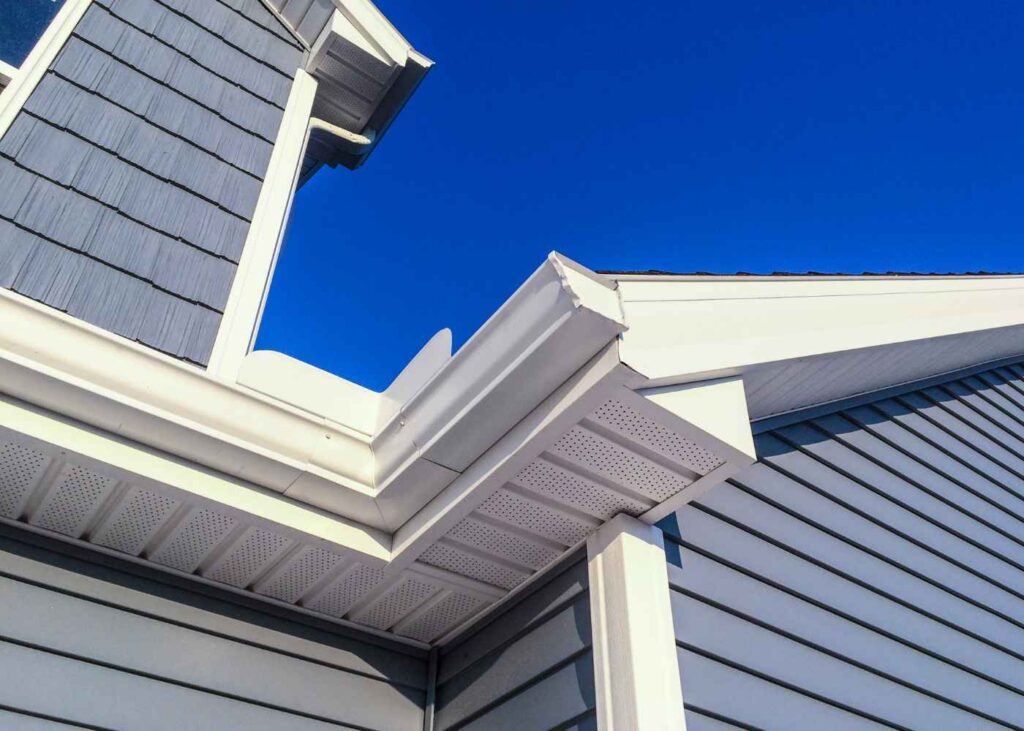Top 5 Siding Solutions to Shield Your Home from Water Damage
 Your home is your sanctuary, and keeping it safe from the elements is a top priority.
Your home is your sanctuary, and keeping it safe from the elements is a top priority.
Siding serves as your home’s armor, protecting it from the ravages of weather and especially water damage.
With so many options on the market, how do you choose the best siding that’s not only water-resistant but also durable, cost-effective, and aesthetically pleasing?
In this comprehensive guide, we will explore the top 5 siding solutions that can keep the moisture out and your peace of mind in.
The exterior of your home is constantly under attack from weather elements, particularly water.
Water intrusion can lead to a host of problems, including mold, mildew, and rot, which can compromise the structural integrity of your home and pose health risks to the occupants.
Selecting water-resistant siding is the first line of defense against these issues, ensuring your home remains dry and damage-free.
The importance of this initial selection cannot be overstated.
Factors such as your home’s location, climate, and even nearby trees can affect which type of siding will be most effective in managing moisture.
It’s not just about preventing the obvious water penetration; it’s about creating a barrier that can withstand years of exposure and the occasional heavy downpour without failing.
Now, without further ado, here are the top 5 siding solutions for safeguarding your home against water damage.
Fiber Cement Siding
Fiber cement siding is a versatile option that offers the look of wood but with increased durability and resistance to moisture.
Made from a mixture of cement, sand, and cellulose fibers, this material does not warp, crack, or rot. It is non-combustible and resistant to termites, a common issue with traditional wood siding.
The composition of fiber cement makes it an excellent choice for managing moisture.
It is non-porous and can be installed with minimal gaps, reducing the chances of water getting behind the siding.
With proper installation and maintenance, fiber cement siding can last over 50 years, making it a long-term solution to your water-resistance needs.
Vinyl Siding
Vinyl siding is one of the most popular choices for homeowners due to its affordability, low maintenance, and wide range of colors and styles.
Despite its lighter weight and lower cost, vinyl siding is an effective water-resistant option when installed correctly.
Modern manufacturing techniques have improved vinyl siding‘s ability to manage moisture.
Its interlocking panels prevent water seepage, and the material itself does not absorb water, unlike wood.
However, it’s essential to ensure proper installation with a moisture barrier to maximize its moisture management capabilities.
Engineered Wood Siding
Engineered wood siding offers the natural beauty of wood with enhanced durability and lower maintenance needs.
It is composed of wood fibers, wax, and resins, manufactured to create a stronger, more moisture-resistant material than traditional wood.
The key to engineered wood’s water resistance is its manufacturing process, which reduces the tendency for the material to expand or contract with changes in moisture levels.
When installed and maintained according to the manufacturer’s guidelines, engineered wood siding can provide excellent protection against water damage while adding a warm, natural aesthetic to your home’s exterior.
Stucco
Stucco, an ancient building material, has made a comeback in modern construction due to its exceptional durability and resistance to water.
It is a cement-based plaster that, when applied correctly, creates a solid, monolithic shell around your home that is highly resistant to water penetration.
Stucco is no slouch in the aesthetics department, offering a classic, textured look that is particularly popular in southwestern and Mediterranean-style homes.
Remember that stucco is only as good as its installation, and hiring a professional experienced with stucco application is crucial for its effectiveness against moisture.
Stone Veneer Siding
If you want to go the extra mile in protecting your home from water damage, stone veneer siding is the top choice.
This siding is crafted from natural stone and, when properly installed, provides a virtually impenetrable barrier against water.
Stone veneer is not only exceptionally durable but also adds a high-end, luxurious look to your home’s exterior.
It can be more expensive than other siding options, but its longevity and low maintenance requirements make it a worthy investment for homeowners looking for a water-resistant and upscale option.
Regardless of the siding solution you choose, the installation process is critical. Even the most water-resistant siding can fail if not installed correctly.
Improper installation, including gaps, inadequate flashing, and neglecting to create a proper moisture barrier, can compromise the effectiveness of any siding.
Regular maintenance is also key to ensuring your siding remains water-resistant throughout its lifespan.
This includes keeping the siding clean, inspecting for any signs of damage or wear, and addressing issues promptly.
By maintaining your siding, you can be confident that your home will remain protected from water damage.
Selecting the right water-resistant siding is a decision that requires careful consideration of your home’s specific needs and your personal preferences.
Each of the top five home siding installation solutions outlined here offers unique benefits in managing moisture while also providing an array of aesthetics to choose from.
Remember, when it comes to safeguarding your home, don’t skimp on quality or expertise.
Investing in durable, water-resistant siding and ensuring it is installed and maintained by professionals will go a long way in protecting your home from unwanted water intrusion.
Category: Home Repair




